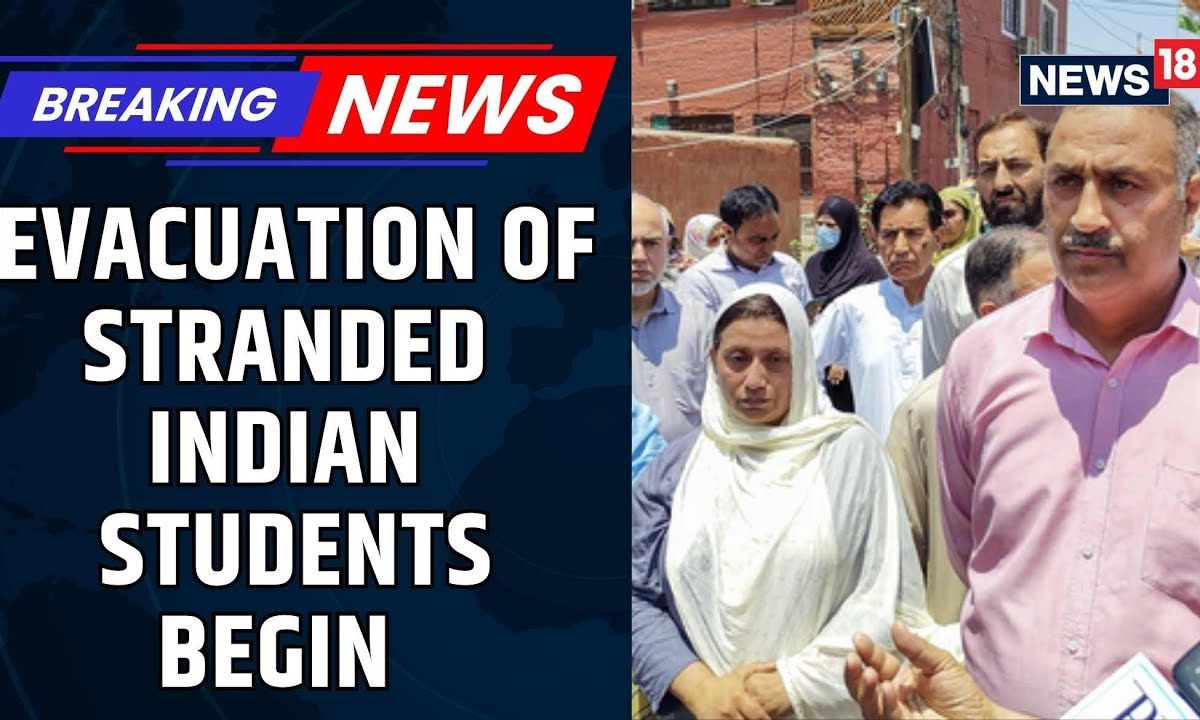

The escalating conflict between Iran and Israel has placed thousands of Indian students in a precarious situation, prompting swift action from the Indian government to ensure their safety and facilitate evacuation. With airspace closures and heightened tensions, the Ministry of External Affairs (MEA) has initiated the relocation of students and activated emergency advisories.
Prime Minister Narendra Modi, currently on a three-nation tour, has voiced his concern over the ongoing conflict, emphasizing that "this is not an era of war." Speaking in Cyprus, he reiterated the need for dialogue and the restoration of stability, echoing India's commitment to peace in the region.
Over 2,500 Indian students are estimated to be in Iran and Israel, with many pursuing medical degrees due to the affordability and relatively easier admission processes in these countries. However, the recent escalation has left them stranded and anxious, with families back home equally distressed. Fatima Khakhi, an MBBS student in Tehran, expressed her gratitude to the Indian Embassy for relocating her to a safer location but highlighted the unrelenting fear and sleepless nights.
The MEA has suspended new visa applications for Iran and is redirecting students to alternative destinations. ForeignAdmits founder Nikhil Jain stated that they are assisting students with embassy registration and ensuring they have updated documentation for potential evacuation. The Indian Embassy in Tehran is actively monitoring the situation, engaging with students, and facilitating relocation to safer areas within Iran. In a communication to Arak University of Medical Sciences, the embassy requested assistance in the evacuation of Indian students, confirming that arrangements have been made for their departure.
India has requested Iran for the safe evacuation of its students stuck in cities hit by Israeli bombings. While Iranian airspace is closed, land borders remain open for the safe passage of Indian nationals. The Iranian Foreign Ministry has requested the Indian government to provide necessary details for those crossing the borders. Evacuations have reportedly begun via Armenia.
Amidst the turmoil, five Indian students have sustained minor injuries in Israeli airstrikes near Tehran University of Medical Sciences. The injured students, including three from Kashmir and two from Maharashtra, are now stable. Parents of stranded students held peaceful protests in Srinagar, urging the government to ensure their safe return. The Jammu and Kashmir Students Association (JKSA) has appealed to PM Modi for urgent intervention, describing the situation as a humanitarian emergency.
Many students are being moved to Qom, approximately 150 kilometers from Tehran, for increased safety. Students in Tehran recall nights of bombings and blackouts, underscoring their terror. One student recounted the sky glowing with streaks of light, the roar of fighter jets, and the thunderclap of explosions near her dormitory. The conflict has disrupted university classes, with students largely confined to their accommodations, relying on Indian Embassy advisories for safety instructions.
PM Modi had a phone call with Israeli Prime Minister Benjamin Netanyahu, during which Netanyahu briefed Modi on the evolving situation. Modi conveyed India's concerns and emphasized the need for an early restoration of peace and stability in the region. India's Foreign Ministry has expressed deep concern about the developments and emphasized that existing channels of dialogue and diplomacy should be utilized to de-escalate tensions. India maintains friendly relations with both Iran and Israel and has offered its support in resolving the crisis.
The government is expected to meet with stakeholders this week to assess the impact on India's trade. The situation remains fluid, and the Indian government is actively exploring all feasible options to ensure the safety and well-being of its students caught in the crossfire.